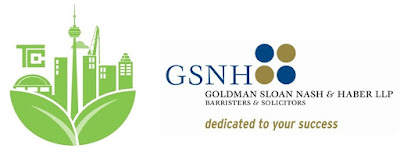Sustainability in Real Estate - 7 Key Performance Indicators (KPI's) Should You Be Tracking?
"The Future Is Now!" or "The End Is Near!" well, either way you look at it, the principles of sustainability is making its way into the real estate business model and plans. The main question you need to ask is what is your organization going to do about it? Are you ready? and where do you even start?
The first thing you need to do as an organization is to determine what you will consider being a part your Key Performance Indicators (KPI) and how they impact your various stakeholders. This can range from a financial implication of sustainability to a metric-based reporting, and even socio-economical reporting. Additionally, you will need to determine what you will do with this information, it's simply not good enough to just track it, you need to turn this information into a profitable venture and create a good marketing opportunity.
What are the 4 key stakeholders in real estate?
Sustainability has vastly different meanings to different stakeholders, let alone the opinions of each individual within each group. We're going to talk about 4 of the key stakeholders and some of their Key Performance Indicators (KPI) which directly impacts them as it relates to sustainability, I'll get into more detail on tertiary KPI's in a future article.
This breakdown in stakeholders also easily defines the different areas of your property, which include: leasable areas, servicing areas, equipment rooms, circulation spaces, etc.. As a result of this division, you are starting to understand where you will be drawing the zones for tracking your KPI's. The great thing about this is that at least in principle, each stakeholder has an invested interest in the areas which directly impacts them and tracking along these lines will provide continuity and clarity of the information.
There is also going to be opportunities for synergy between the stakeholders as their areas of invested interest overlap. Such as, the tenant and property operator reviewing real-time energy performance or a customer who is looking for a retailer who is actively improving their socio-economical profile.
The standard business metrics for property ownership will stay intact, which include; the financial management of all the aforementioned areas as it impacts the rents, marketability of the property, asset valuation, and energy costs as it pertains to the operational cost. All of these metrics also directly relate to the standard financial modelling which can then be used to determine the properties success or failure.
Lastly, there are the new Sustainability KPI's which you will choose to track. These metrics are both qualitative and quantitative in nature and in some instances they do have a cost implication on the operations of your property and in some instances they are not able measured in terms of a Return On Investment (ROI), specifically with regards to biodiversity and socio-economic metrics, for these you would need to look at the tertiary benefits which in turn makes you "better" than your competitor, at which time it could then translate into a higher occupancy rate, higher sales, and lower risk of future costs, etc.
What sustainability KPI's should you be aware of and be tracking?
Each of these items will be a future blog post in and of themselves.
What are you going to do now?
First, Start with a conversation, it's not hard or complicated to do. The most important thing is to involve as many people from the different stakeholders as you can, they will have different opinions and justifications for those opinions. At the start of this process, there are no bad ideas, so be open and listen.
Secondly, SUMMARIZE!! Determine what ideas are the most important to you and your organization. Is it financial? Efficiency? Health? And then identify what KPI's you will use to monitor those issues.
Thirdly, GET TO WORK!! Set up the teams you need to figure this stuff out. Make sure you have the right people who can help. Then start to track. At the beginning, it's not going to be easy and the information may not be what you predicted, and it's okay. It will get easier as the process moves on and as it gets worked through.
Lastly, GET BETTER!! the whole reason you did all of this work is to get better, be more profitable, attract more tenant or customers, etc. Don't let your successes stop you from continuing to get better.
After all, don't forget to tell people about it, the altruistic bone in my body wants everyone to be more successful, and by sharing your successes with others, you will both inspire and help them achieve more.
Have any thoughts? Share them below, and as always please share this article to help others learn.
Blog post by: Jorden Lefler, Senior Sustainability Manager






Comments
Post a Comment